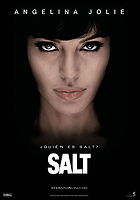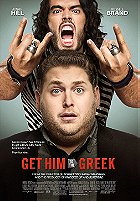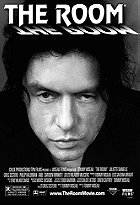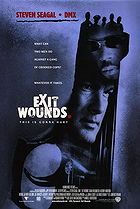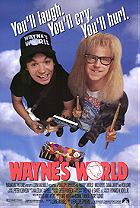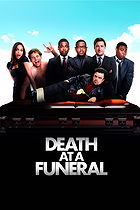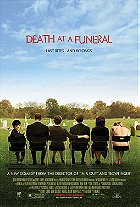Over the years, Chris Morris has established himself as the enfant terrible of radio and television in Britain. Following a period of announcing the fake deaths of leading politicians and celebrities on radio, he went on to create the satirical television programs The Day Today and Brass Eye. Since the end of Brass Eye, Morris kept comparatively quiet for a few years. That is, until he opted to co-write and direct 2010's Four Lions; his first feature film. In essence, Four Lions is a terrorism comedy and a sharp, pitch-black satire with the balls of films like Network and Dr. Strangelove. Adjectives like 'edgy', 'audacious', 'provocative' and 'shocking' immediately leap to mind. Additionally, this is a balloon-sized laugh riot from beginning to end - one of the funniest motion pictures in years. Yet, those who are accustomed to Morris' proverbial wit may be surprised to find that the filmmaker also added plenty of heart to complement the belly-laughs.

As the film begins, we are introduced to a group of London-based Muslins who desperately want to blow something up in a suicide bombing attack. They are unsure of what they should destroy, or even why, but they are nonetheless convinced that strapping explosives to themselves is the appropriate thing for a bunch of young Muslims to do. The bad news is that they're planning an attack, but the good news is that the group are clueless and inept beyond belief. The film tracks the Muslim men as they record mission tapes, train in Pakistan and try to formulate a coherent plan.
Chris Morris - who wrote the script with Jesse Armstrong, Sam Bain and Simon Blackwell (In the Loop) - was reportedly interested in using Four Lions to emphasise the notion that terrorists are in fact normal everyday men who are integrated within our culture. Fortunately, he hit the nail on the head. On top of this, it's doubtful that Morris' film would prove offensive to anyone. It does not mock the characters for being Muslim, nor is the movie anti-Islamic - instead, Morris had a simpler aim: to exploit male stupidity. The point is not that these guys are Muslims - the point is that the group are so incompetent that they couldn't organise a piss-up in a pub, let alone a terrorist attack to bring England to its knees. Morris clearly took great delight in puncturing the objectives of the group over and over again, with each ludicrous development taking the film to new comedic heights. Four Lions is also a biting satire of the imbecility of fanaticism that benefits from dagger-sharp dialogue laced with droll comedy. The comedy within Four Lions is genuine, grade-A DARK humour as well. Comedies this ballsy, hilarious and black are few and far between.

Yet, just when you think Four Lions offers nothing but rapid-fire comedy, Morris and his writers throw out something unexpectedly warm or insightful. For instance, the film's sobering final five minutes manage to simultaneously be blackly comic, intellectually stimulating and curiously respectful. Added to this, it's possible to grow to sympathise with the central characters while at the same time finding their ineptitude laughable and their ruthlessness appalling. This is a testament to the skills of the major players, all of whom are superb in their respective roles. Riz Ahmed is particularly terrific as Omar - he kept a straight face whilst detonating the comedy, and brought commendable pathos to the role as well. Meanwhile, Chris Morris' directorial handling of the material is excellent. The mise-en-scène is effective, while the shaky-cam cinemagraphic techniques heighten the authentic edge of the material. The only problem with Four Lions is the slight feeling that it's a single joke stretched to its limits. Sure, it's a brilliantly-written comedy, yet there are a few patches during which the energy relents and the film consequently begins to drag.
With Chris Morris' Four Lions, a human face has at long last been painted onto previously dread-inspiring terrorist caricatures - it provides insight into the minds of a bunch of human Muslim men who happen to have stumbled on the wrong path to paradise. Added to this, if it's true that we stop being scared of something once we can laugh at it...then Four Lions has made this reviewer feel a bit better about the war on terror. In fact, according to Morris, the movie is loosely based on actual blunders made by terrorist cells. Some movie-goers may find that Four Lions hits a little too close to home (people reportedly called for theatres to boycott the film), but those who are able to let their inhibitions go will find this to be a perfectly-pitched, hilarious ride.
8.4/10
 Login
Login
 Home
Home 183 Lists
183 Lists 1665 Reviews
1665 Reviews Collections
Collections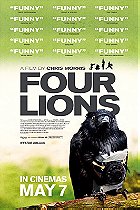
 0 comments,
0 comments, 